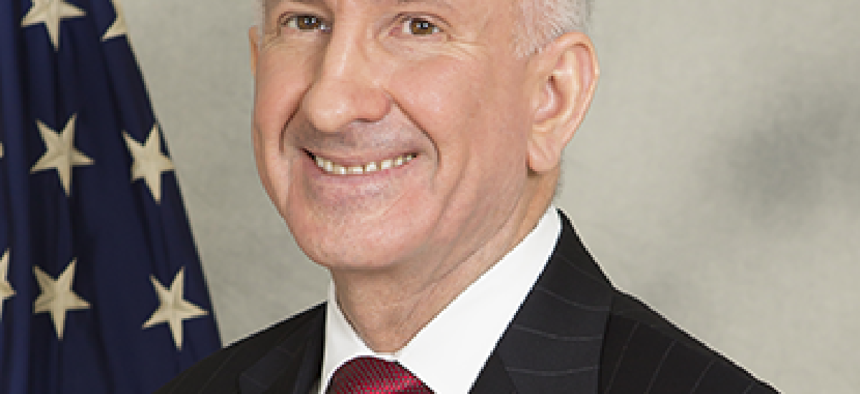New FAS commissioner plans fixes for cost avoidance problems

Thomas Sharpe, two months into his new role, pledges to address problems highlighted by inspector general.

Thomas Sharpe (GSA photo)
Companies who have dragged their feet on paying their Multiple Award Schedules program fees can expect renewed pressure. Thomas Sharpe, the new commissioner of the Federal Acquisition Service at the General Services Administration said he and other FAS leaders will work to solve the problem, which an Inspector General audit highlighted.
"I will be working with the FAS leadership team to develop and implement an aggressive approach to recovering any fees due to the government; as well as a means of systemically addressing the outstanding recommendations within the IG's report," Sharpe told FCW.
In fiscal 2011, FAS contracting officers agreed with all of the auditors’ recommended cost avoidances but only achieved 36 percent of the savings auditors said they could have, about $85.7 million of a projected $240 million.
Auditors also found contractors did not have prepared systems to count and report sales to FAS for their monthly Industrial Funding Fee. The 0.75 percent fee is attached to their sales prices. In one case, auditors found a company did not report more than 12 percent of the GSA sales. This one company may have underpaid GSA by roughly $84,000 over the life of its contract, the IG concluded.
The IG noted that while $84,000 may not seem like much, it raises alarms when extrapolated over a program that logged $38 billion in sales in fiscal 2011.
Sharpe, who has been commissioner since January 22, put these problems on his to-fix list. And he argued that FAS is getting better.
"Over the last two years, the IG found that FAS has made improvements on many of the concerns voiced in the original audit," Sharpe said.
In fiscal 2011 audits, more than two-thirds of vendors gave contracting officers flawed information on their commercial sales practices. GSA considers the benefits a schedule holder has given to its other customers. In fiscal 2010, among companies audited, the IG found 83 percent had flawed CSPs. In fiscal 2011, the number had decreased to 69 percent.
The IG noted the improvement but said it is still a serious problem. The misstatements adversely affect how contracting officers determine fair and reasonable prices, according to the report.
In addition, more than a third of contractors audited in fiscal 2011 had minimal or no commercial sales. It was a slight improvement over audits done in 2010.
"If there are no comparisons with commercial sales, the identified basis of award customer may prove to be ineffective, and customer agencies cannot be assured that they will benefit from pricing changes in the marketplace," the IG wrote in the report.
NEXT STORY: DOD rethinks medal for cyber warriors


